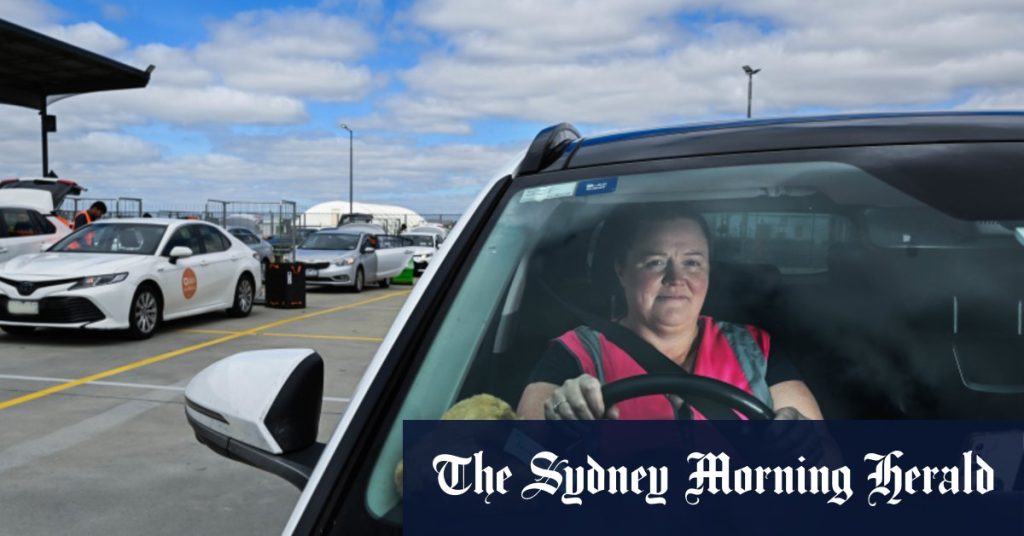Amazon’s rapid expansion in Australia has transformed the e-commerce landscape, driving both innovation and controversy. The company’s sales have surged by a staggering $2 billion this year, reaching $6.5 billion, solidifying its position as the second-largest online retailer in the country. This growth has been fueled by substantial investments in infrastructure, including large distribution centers and robotic fulfillment warehouses, enabling same-day delivery in Sydney and paving the way for similar services in other major cities like Melbourne, Brisbane, and Adelaide by 2026. Amazon’s success is built upon its reputation for speedy delivery and competitive pricing, appealing to the evolving expectations of Australian consumers who are increasingly embracing online shopping.
While Amazon’s expansion has been met with enthusiasm by many, concerns remain regarding its labor practices, environmental impact, and potential disruption to traditional retail. The company’s gig-based delivery model, utilizing independent contractors through its Amazon Flex program, has raised questions about worker compensation and job security. Drivers are responsible for their own vehicle expenses, including petrol, parking, tolls, insurance, and maintenance, while earning a fixed rate per delivery block. Critics argue that this model shifts the burden of these costs onto the drivers, potentially leading to inadequate earnings and precarious working conditions. Furthermore, the rapid growth of online deliveries has sparked debate about the environmental consequences, particularly in terms of packaging waste and carbon emissions from increased transportation.
The shift towards online shopping has also raised concerns about the future of bricks-and-mortar stores. As consumers increasingly opt for the convenience and competitive pricing offered by online retailers like Amazon, traditional retailers face significant challenges in maintaining their market share. This shift has the potential to reshape urban landscapes and impact local economies, raising questions about the long-term viability of physical retail spaces. While Amazon emphasizes its commitment to empowering Australian small businesses through its platform, the impact of its rapid expansion on the broader retail ecosystem remains a complex issue.
Amazon’s operational strategies have also drawn scrutiny. The company’s aggressive industrial relations practices and tax strategies have been the subject of criticism. Unions have called on Amazon to improve its treatment of workers and ensure fair wages and safe working conditions. Furthermore, questions have been raised about the company’s tax contributions in Australia, with calls for greater transparency and accountability. While Amazon has reported paying $125 million in tax on $6.6 billion in income, critics argue that this amount is disproportionately low given the company’s significant revenue in the country.
Despite the controversies, Amazon has taken steps to address some of the environmental concerns surrounding its operations. The company recently announced its transition away from single-use plastic packaging, opting for recyclable paper and cardboard alternatives. This move reflects a growing awareness of the environmental impact of e-commerce and a willingness to adopt more sustainable practices. However, experts suggest that both Amazon and consumers have a role to play in further reducing their environmental footprint. Promoting refurbished items, encouraging the purchase of durable and repairable products, and opting for slower delivery options are among the strategies that could contribute to a more sustainable e-commerce ecosystem.
The rapid rise of Amazon in Australia exemplifies the transformative power of e-commerce. While the company’s growth has brought benefits such as greater consumer choice and convenience, it has also raised important questions about labor practices, environmental sustainability, and the future of retail. As Amazon continues to expand its operations, it will face increasing pressure to address these concerns and demonstrate its commitment to being a responsible corporate citizen. The ongoing debate surrounding Amazon’s impact on the Australian economy and society highlights the complex interplay between innovation, competition, and social responsibility in the rapidly evolving world of online retail.

